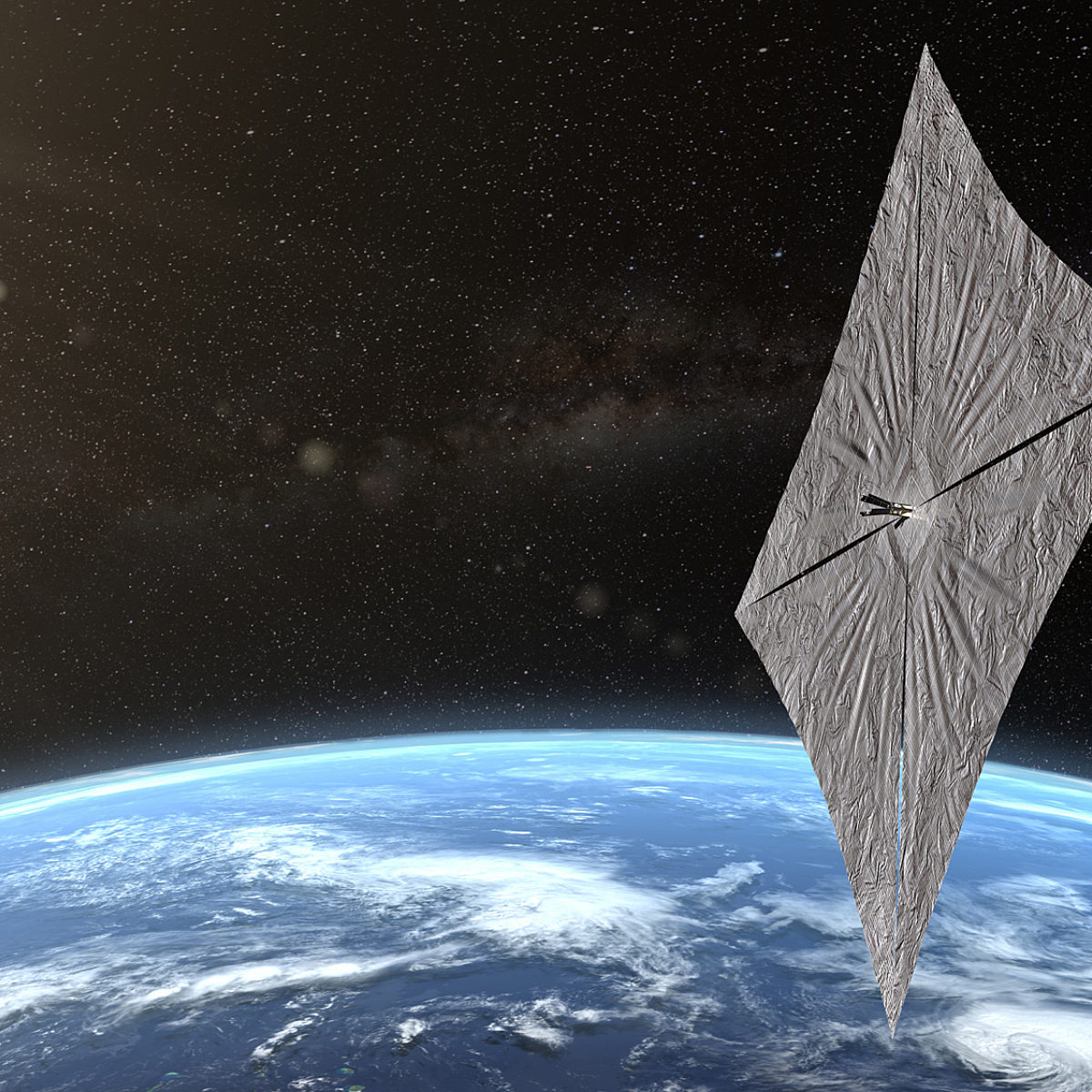Jason Davis • May 09, 2019
LightSail 2 Integrated with Prox-1 Carrier Spacecraft
LightSail 2 is officially on the road to launch.
The Planetary Society's solar sailing CubeSat has successfully shipped to the Air Force Research Laboratory (AFRL) in Albuquerque, New Mexico, where it was integrated with Prox-1, the Georgia Tech-designed spacecraft that will carry LightSail 2 to orbit aboard a SpaceX Falcon Heavy rocket. The joining of the two spacecraft marked a key mission milestone, as LightSail 2 passed from its Planetary Society-led team's hands for what is expected to be the last time.
“After years of work by our mission team preparing and testing LightSail 2, we are very excited to see it off on its journey,” said LightSail Program Manager and Planetary Society Chief Scientist Bruce Betts. “We look forward to next communicating with LS2 in space!”
LightSail, a Planetary Society solar sail spacecraft
LightSail is a citizen-funded project from The Planetary Society to send a small spacecraft, propelled solely by sunlight, to Earth orbit.
The integration procedure began on 6 May 2019, when engineers at Cal Poly San Luis Obispo in California removed LightSail 2 from storage and carefully packaged it for shipment:
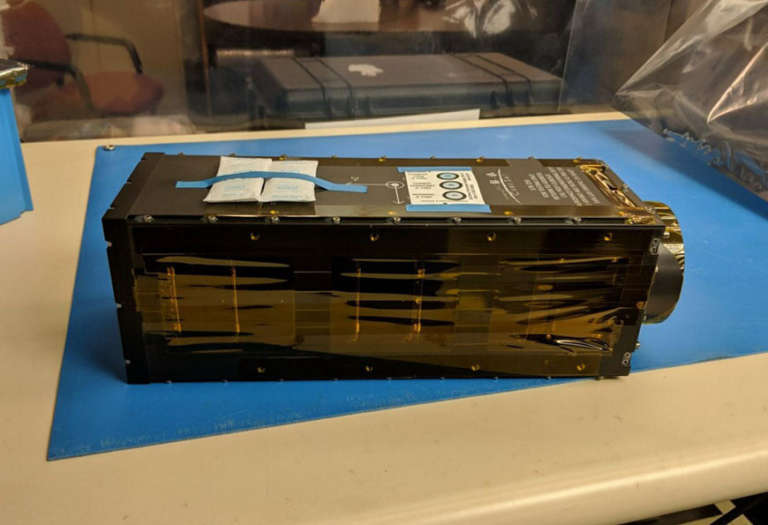
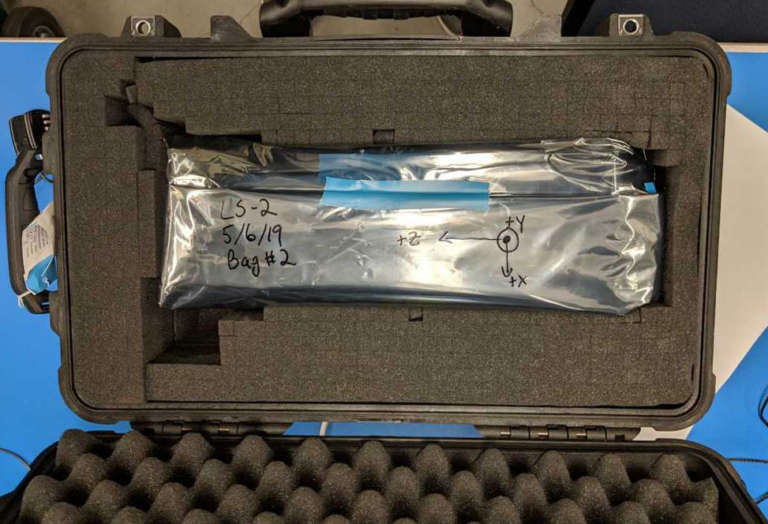
Cal Poly CubeSat engineer Ryan Nugent transported LightSail 2 by hand on a flight to Albuquerque, and sent us this picture of the spacecraft waiting at the boarding gate:
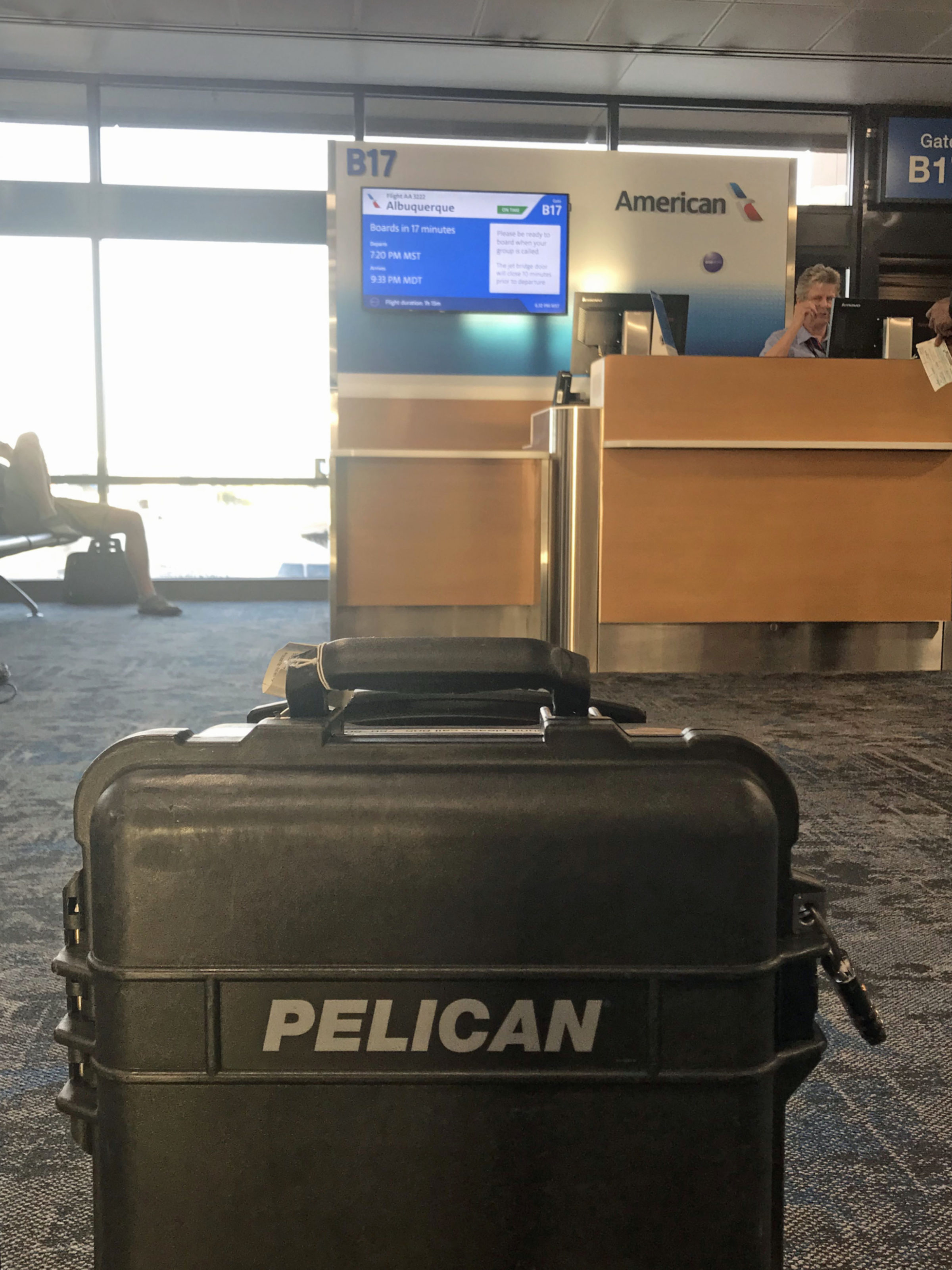
Integration with Prox-1 took place the following day, on 7 May 2019. Nugent said the process only took 2 hours and went very smoothly. This was LightSail 2's second integration with Prox-1; the spacecraft was first integrated in March 2018, but launch delays prompted the team to bring the CubeSat back to Cal Poly so its batteries could be periodically charged.
In April, Alex Diaz, an engineer at Ecliptic Enterprises Corporation, updated the spacecraft's software, topped off the batteries, and performed an "aliveness test"—a series of checks to make sure the spacecraft responded properly to basic commands.
Prox-1 and LightSail 2 will soon ship to Cape Canaveral, Florida, where they will be attached to the SpaceX Falcon Heavy rocket flying the STP-2 mission for the U.S. Air Force. NASA, which also has payloads on the rocket, reports the launch is currently scheduled for no earlier than 22 June 2019.
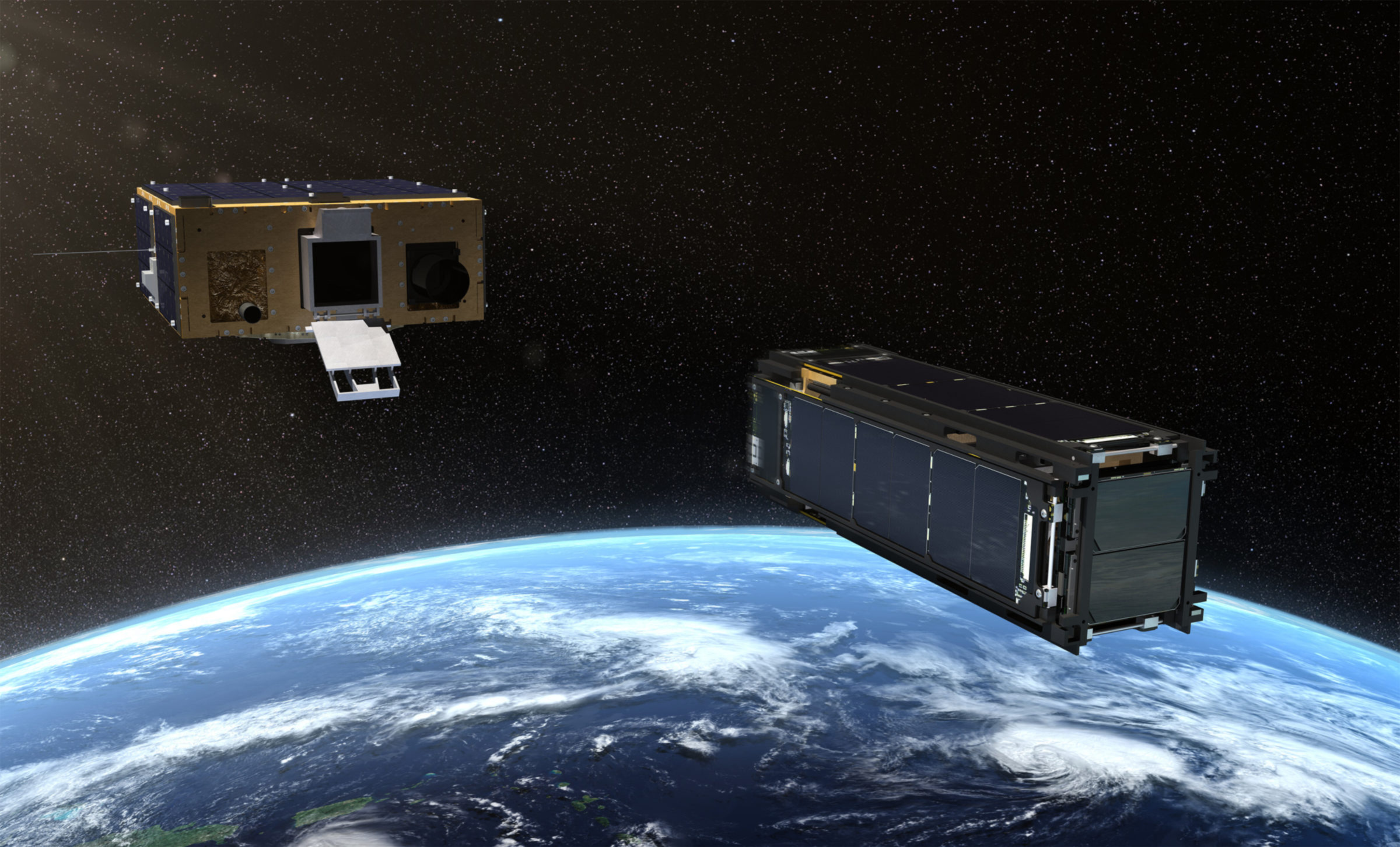
Support our core enterprises
Your support powers our mission to explore worlds, find life, and defend Earth. You make all the difference when you make a gift. Give today!
Donate

 Explore Worlds
Explore Worlds Find Life
Find Life Defend Earth
Defend Earth


